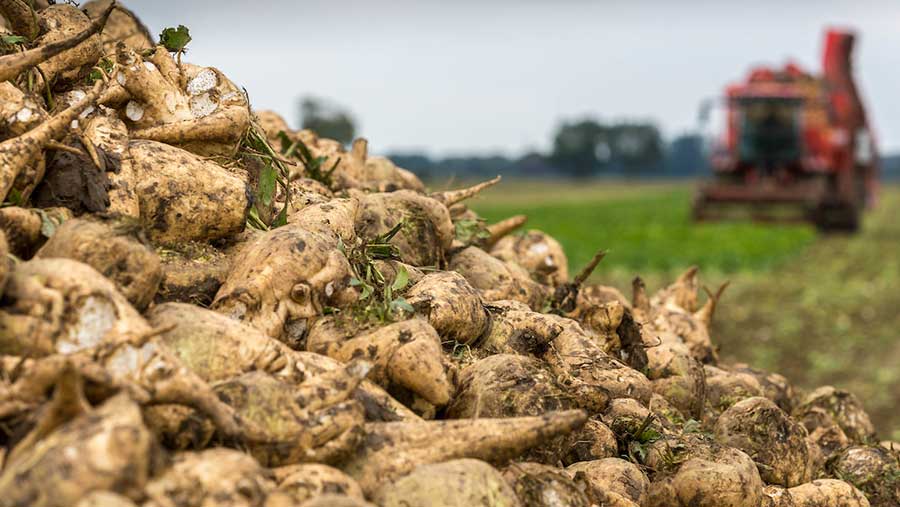Defra rejects plea for exemption to ban on neonics on sugar beet seed
 © Tim Scrivener
© Tim Scrivener The government has rejected an appeal for an exemption to the ban on neonicotinoid use for sugar beet seed.
The ban on neonicotinoid use on flowering plants, such as oilseed rape, was extended to all outdoor crops in April.
Three neonicotinoids – clothianidin, iIidacloprid and thiamethoxam – were covered by the ruling, which was voted through by the EU Commission and supported by the UK Government.
While voting for the ban, Defra said it would consider applications for emergency use and the British Beet Research Organisation (BBRO) submitted a request to use Poncho Beta and Cruiser SB neonicotinoids.
See also: What the neonicotinoid ban means for sugar beet growers
A government statement issued on 11 October said that the BBRO application had been “refused on the grounds that the risks to bees and the wider environment contained in the proposals were too great”.
In its explanation for the decision, the government said that it had made it clear that emergency authorisations would only be considered in exceptional circumstances.
“These would be granted where there was a real need for the products and the risk to pollinators and humans was sufficiently low,” the statement said.
The government added that the decision was based on recommendations from the Health and Safety Executive nd UK Expert Committee on Pesticides.
“Ministers have accepted these recommendations and the applications have therefore been refused,” a Defra spokeswoman said.
It means that the ban on sale and supply of the three seed treatments, imposed in mid-September, will continue and the use of treated seed will end on 19 December as planned.
Independent agricultural consultant Robin Limb spelled out the significance of losing neonicotinoids.
He explained that losing the use of the active ingredients could leave the sugar beet crop exposed to diseases such as beet yellows virus and beet mild yellowing virus.
Neonics have played a part in the improved yields achieved since the 1970s because the seed treatment meant aphids were killed before they could infect the plant, Mr Limb said.
Prior to that, aphicides were used, but even so these were applied after the aphids were present and some disease took hold.
Since then many of those aphicides have been withdrawn or become less effective, so losing neonicotinoids means the grower has even fewer tools available to combat disease, he added.
Speaking back in April, sugar beet growers, who used neonicotinoid-treated seed to help establish crops, described the extended ban as a “black day” for farmers.
The International Confederation of European Beet Growers claimed it was bad for the environment, bad for bees and bad for growers.
Agrochemical giant Bayer said the decision would “further reduce European farmers’ ability to tackle important pests, for many of which there are no alternative treatments available”.
At the time, Bayer said it remained convinced the restrictions were unwarranted and that neonicotinoids were safe when used in accordance with the label instructions.
But organic farmers and environmental campaigners welcomed the further restrictions.

